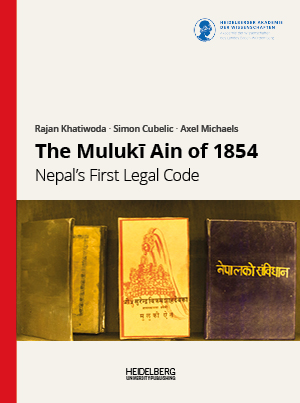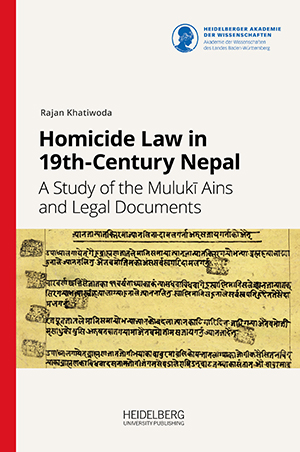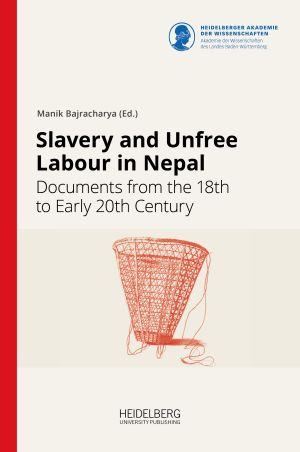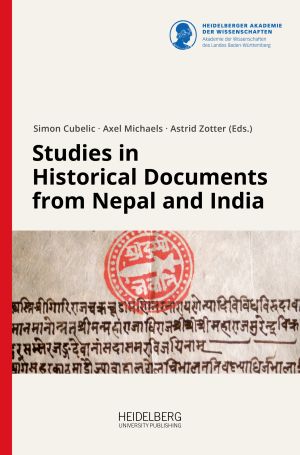Khatiwoda, Rajan
The Mulukī Ain of 1854: Nepal’s First Legal Code
The Mulukī Ain of 1854—the law code with constitutional features drafted at the initiative of Prime Minister Jaṅga Bahādura Rāṇā—is the foundational legal text for modern Nepal. It covers almost every aspect of public, criminal, private and religious law, ranging from the organisation of the state and courts to murder and other delicts, the workings of the caste system and the joint family, matters of purity and penance, customary law, widow-burning and witchcraft. As such, the Mulukī Ain is a unique source not only for the political, social and economic life of 19th-century Nepal, but also for the place of traditional Hindu jurisprudence in South Asian legal cultures.
Homicide Law in 19th-Century Nepal: A Study of the Mulukī Ains and Legal Documents
The main ambition of this book lies in a detailed analysis of the formation and enforcement of Nepal’s Mulukī Ain of 1854, specifically focusing on the provisions regarding homicide within the Mulukī Ains of 1854 and 1870. This study also examines contemporaneous legal records, revealing the complexities of the Ain’s implementation. The articles on homicide serve as a microcosm illustrating the broader evolution of Nepal’s legal code, which departed from outdated punishments like genital mutilation and introduced fines and imprisonment instead. Still, the innovations introduced into the Ain of 1854 were not uniformly progressive. The Ain in its various stages of development thus showcases the complex ways in which legal systems inevitably undergo transformation.
Slavery and Unfree Labour in Nepal: Documents from the 18th to Early 20th Century
The topic of slavery is largely under-represented in the historiography of Nepal. This source book, aware of this disparity and wishing to encourage future studies on the topic, provides the reader with editions, translations and a study of selected documents and legal texts of Nepal from the period of the eighteenth to the early twentieth century. These sources are concerned with such different aspects of slavery as donations, transactions, bondservitude, forced labour, emancipation, and law.
Studies in Historical Documents from Nepal and India
This volume is the outcome of the conference “Studying Documents in Premodern South Asia and Beyond: Problems and Perspective”, held in October 2015 in Heidelberg. In bringing together experts from different fields—including Indology, Tibetology, History, Anthropology, Religious Studies, and Digital Humanties—it aims at exploring and rethinking issues of diplomatics and typology, the place of documents in relation to other texts and literary genres, methods of archiving and editing documents, as well as their “social life”, i.e. the role they play in social, religious and political constellations, the agents and practices of their use, and the norms and institutions they embody and constitute.
The book is the first volume of the Documenta Nepalica – Book Series, published by the Heidelberg Academy of Sciences and Humanities in collaboration with the National Archives, Nepal.







